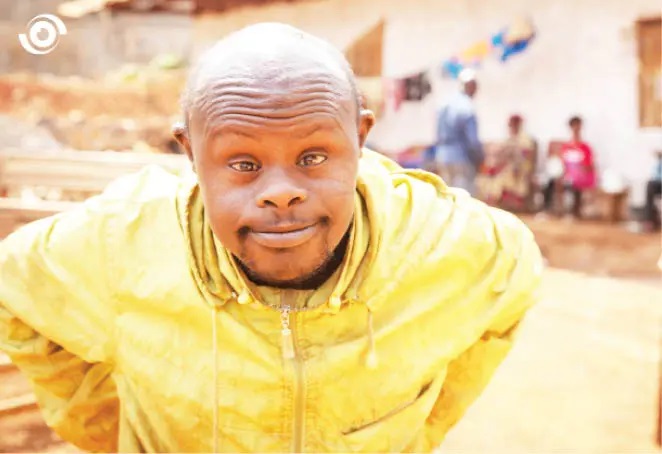Thelma Chioma Abeku
I had a conversation with a mother whose son was born with Down syndrome and one of her greatest challenges was “people’s insensitivity to her plight as a parent and to her son’s condition”. She talked about the time a stranger chastised her for overindulging her then five-year-old boy who, because he hadn’t yet mastered potty training, was still wearing diapers. The stranger went on to brag about her own toddler who already knew how to use the potty without requiring much assistance. “This type of embarrassing situation is what I go through most of the time”, she said.
A chromosomal disorder
Down syndrome is one of the most commonly occurring chromosomal abnormalities in humans. It is a genetic and physical disorder that occurs when an individual has an extra copy of chromosome 21. Although the risk of having a child with Down syndrome increases with maternal age, a baby with Down syndrome can be born to a mother of any age. It exists in every part of the world and has a wide range of consequences on learning styles, physical traits, and health.
People With Down syndrome commonly have distinct physical features, unique health issues, and changes in cognitive development. Some common physical characteristics can include: eyes that slant upward, low muscle tone, small stature and a short neck and small hands and feet. Alterations in their cognitive development can result in learning disabilities and developmental delays.
Globally, between 3,000 and 5,000 babies are born with this chromosomal anomaly every year. Although there are people living with Down syndrome in Nigeria, there a dearth of information on the condition. The only research into Down syndrome in Nigeria was carried out in a hospital, over a 9-year period; from April 1972 to December 1980. The findings, which were published in 1982, revealed a frequency of 1 in 865 livebirths.
Sadly, people with Down syndrome in Nigeria are, more often than not, relegated to a life of drudgery and neglect by their parents and society because of the culture of stigma. They are often excluded from certain elements of society and in extreme cases, even their right to life itself is denied them.
People with Down syndrome, whatever their age, are people first. They are people with abilities, strengths and weaknesses like everyone else. They may have additional needs but first they have the same needs as everyone else.
Total inclusion for everyone
Today, as I recall my conversation with the lady, I am acutely aware of the fact that somewhere in rural or even urban Nigeria, there is a person living with Down syndrome who is being denied their right to a normal and inclusive life. The 2022 World Down Syndrome Day (WDSD) was observed in March, with the theme, “What does inclusion mean?” This is an apt question because for many reasons, one of which is a lack of understanding about what inclusion is and what inclusive systems look like in practice, people with Down syndrome and other disabilities do not benefit from full and effective participation and inclusion in society.
The United Nations, in the general principles of the UN Convention on the Rights of Persons with Disabilities (UN CRPD), calls for: “full and effective participation and inclusion in society”. Like everyone else, people with Down syndrome, deserve to live their best lives. It starts with creating an inclusive, segregation free environment where they and their loved ones can thrive daily.
The quality of health care, education and community support people with Down syndrome receive makes a real difference to their progress throughout life. Educating children with Down syndrome entails providing the proper information, resources, and support to the students, their parents, and educators to ensure that they receive the right education that equips them to live a life full of choices. Providing adequate healthcare for them also involves ensuring that they have access to the quality and level of care required to meet their special and everyday health needs.
It is therefore important that the federal and state governments enact policies that provide free inclusive educational programs for people with Down syndrome at all levels, as well as a healthcare benefits package for them. This is what inclusion means. We must commit to educating ourselves inorder to raise awareness regarding people living with Down syndrome and other disabilities so as to destroy every form of bias and end every form of stigma to ensure that everyone is treated with empathy and compassion.
Chioma Abeku is an Information and Research Manager at Nigeria Health Watch


